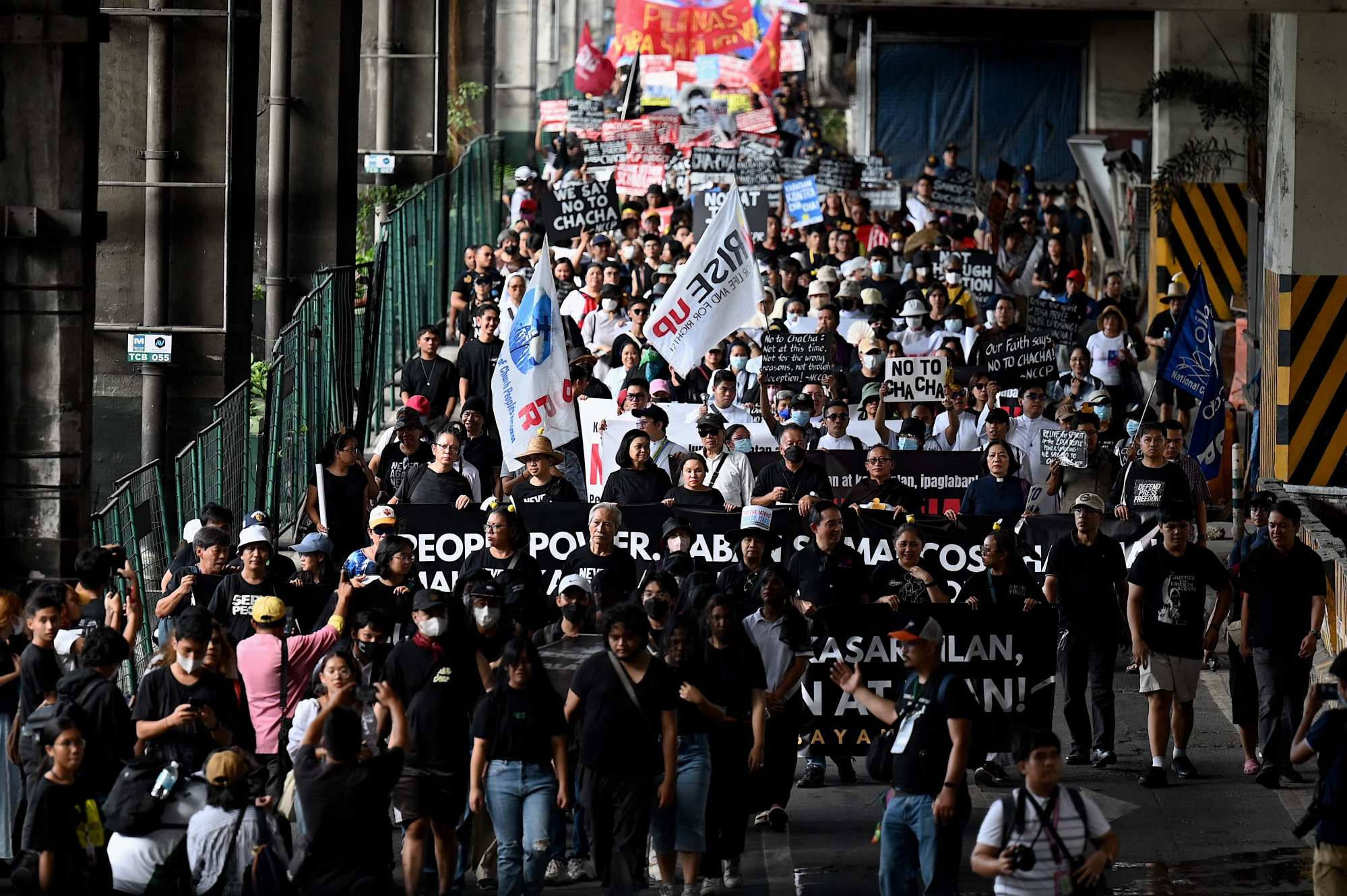Critics warn the effort could lead to the abolition of term limits, with presidents currently allowed just one six-year stint in office.
“The theme of this protest is to reject Marcos’s charter change moves which is a move to remain (in) power … which is basically what happened 38 years ago,” said economist Rosario Guzman, 58. She also said she had taken part in the 1986 uprising.
“No to Cha-Cha (charter change),” read a protest banner displayed behind a mock black coffin marked “Freedom and Democracy”.
Marcos maintains he is primarily seeking to amend the charter’s economic provisions to allow more foreign investment, and ideally create more jobs.
He has said the political aspects, including term limits, should be tackled later.
According to police in Manila, a few hundred people joined Sunday’s march, a far cry from the crowd that paralysed the capital’s main avenue over four days in February 1986 until the military withdrew its support for the elder Marcos.
Rights groups say Marcos Snr’s regime jailed, tortured or killed tens of thousands of critics, including religious leaders, journalists and student activists, while corruption left the country impoverished.
At the 38th anniversary march, 21-year-old demonstrator Giu de Sagun said he felt like he was “watching history repeat itself”.
Some protesters wore shirts and hats vowing “never again”.
At a small, official anniversary event in Manila, a group of government workers raised Philippine flags after laying a wreath in front of the People Power Monument. No senior government officials attended.

Marcos Jnr and his family returned to the Philippines after his father’s death in 1989, and began a remarkable political comeback.
His presidential victory was fuelled by a massive online misinformation campaign that portrayed his father’s time in office as a golden era.
He has since won praise for pivoting away from his predecessor Rodrigo Duterte’s brutal drug war, which left thousands dead.
Under the younger Marcos’ government, rights campaigner and vocal Duterte critic Leila De Lima was also freed after nearly seven years behind bars.
“Under (Marcos Jnr), we are given the opportunity to make use of a democratic space in transition from the authoritarian regime that was Duterte’s,” she said last week.
“This is our breathing room from the seven years of nightmare that we thought was all over in 1986,” she added.
